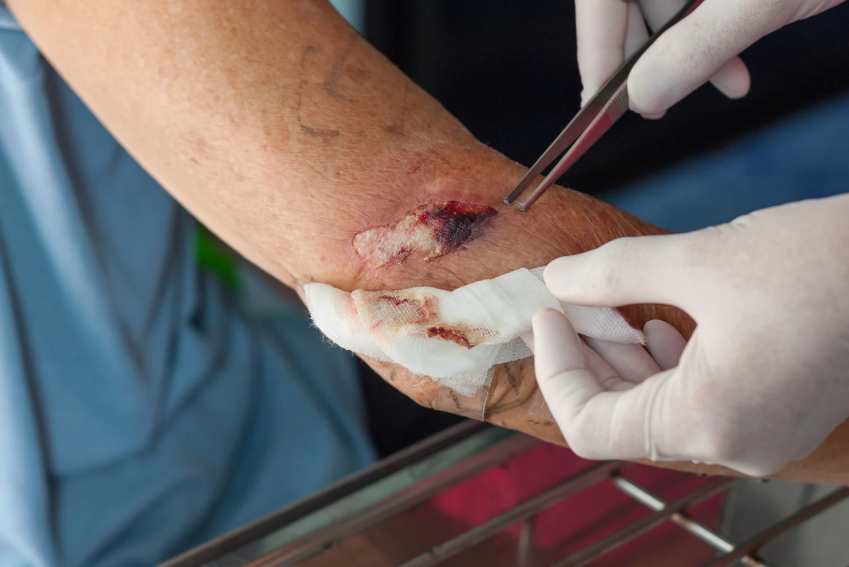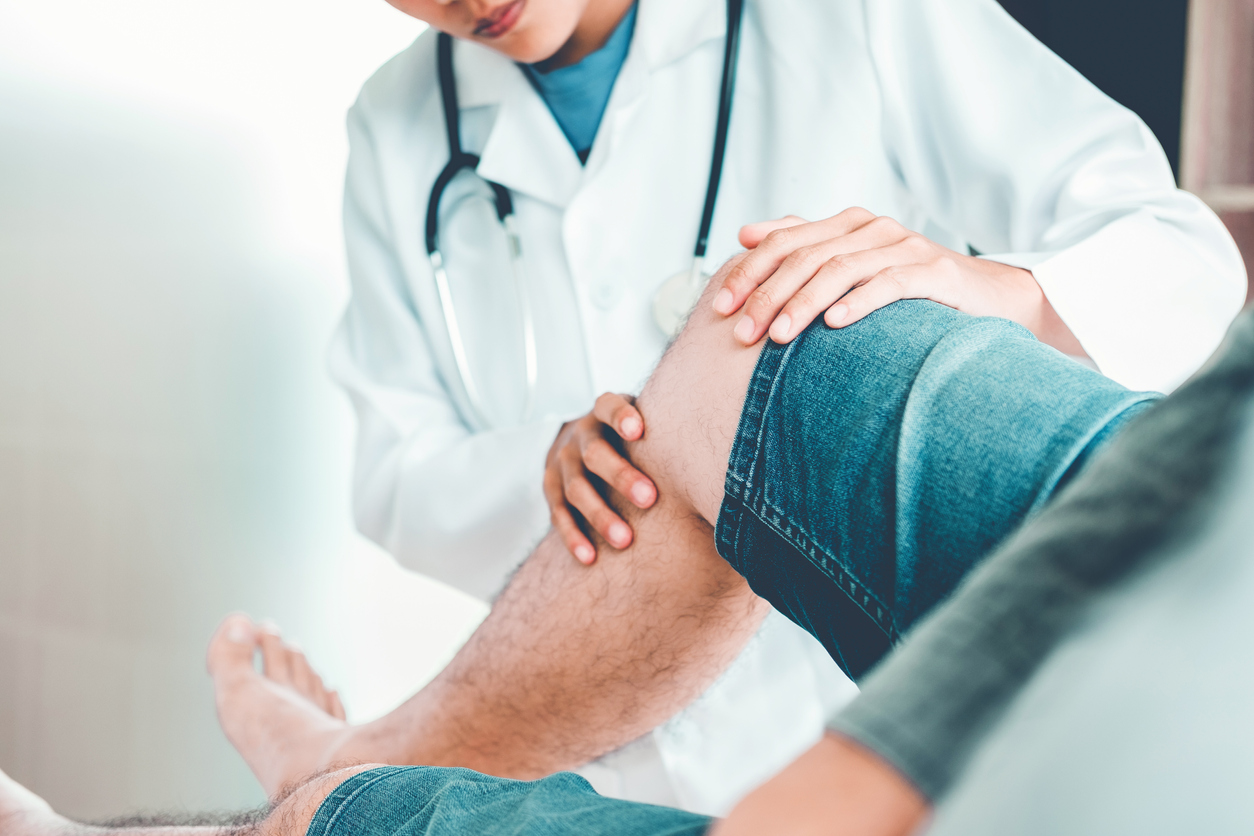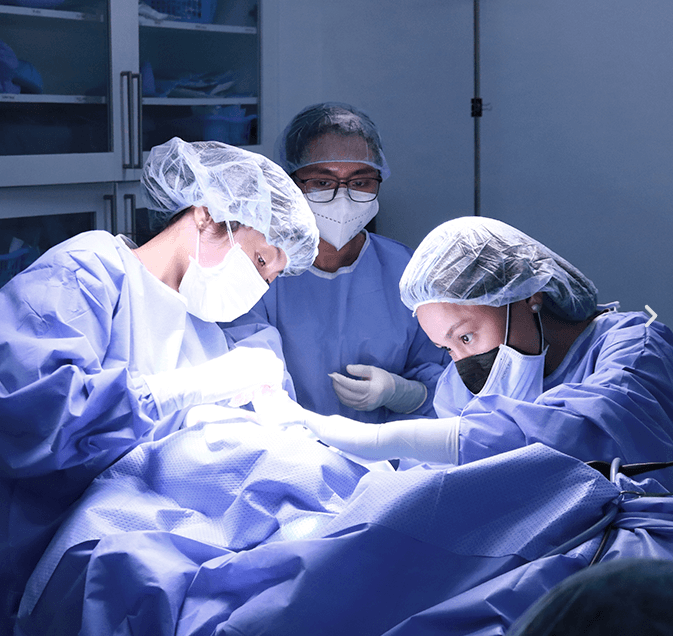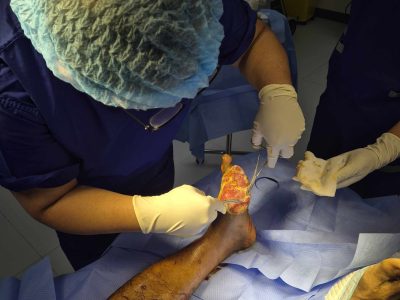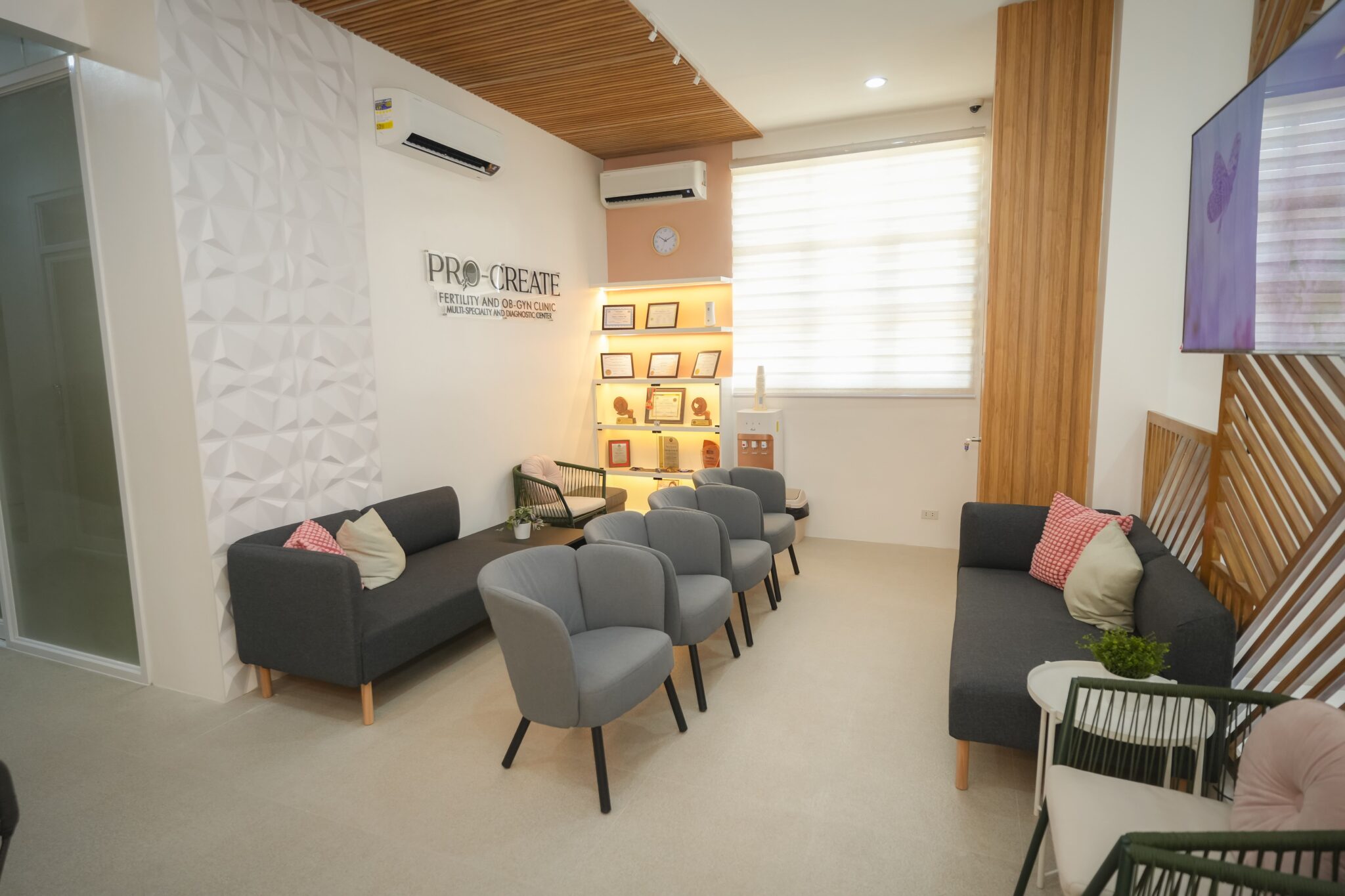Diabetic patients are particularly vulnerable to complications caused by infected wounds. These infections can escalate quickly and lead to severe consequences, including limb amputation. For individuals managing diabetes, regular consultations with a Doctor for Infected Wounds are crucial to prevent such risks. Kalingap Wound Care Clinic offers specialized care for diabetic wounds, providing advanced treatment options and compassionate support tailored to each patient’s needs.
Understanding the Link Between Diabetes and Infected Wounds
Diabetes impacts the body’s ability to heal wounds efficiently. High blood sugar levels can damage blood vessels and nerves, leading to poor circulation and reduced sensation in the extremities, particularly the feet. This combination of factors makes diabetic patients more prone to injuries, and their wounds may take longer to heal.
Poor circulation means that oxygen and nutrients are not delivered effectively to the wound site, which is essential for tissue repair. Additionally, nerve damage (neuropathy) often prevents patients from feeling pain or discomfort, making it easier for small injuries to become infected without the person realizing. These factors contribute to why diabetic patients need to see a Doctor for Infected Wounds regularly to manage and treat wounds before they become severe.
The Risk of Infected Wounds for Diabetic Patients
For diabetic individuals, even minor wounds can rapidly become infected and complicated if not treated properly. Infected diabetic wounds are not just painful; they can lead to more severe health issues like sepsis or, in the worst-case scenario, limb amputation. Regular monitoring by a Doctor for Infected Wounds can help prevent such outcomes.
Diabetic foot ulcers are one of the most common and serious types of infected wounds among diabetic patients. These ulcers often form because of pressure, friction, or injury that goes unnoticed due to nerve damage. If left untreated, the infection can spread, requiring more invasive treatments like surgery. The earlier an infection is detected, the better the chances of preventing long-term complications. This is where Kalingap Wound Care Clinic comes in, offering expert diagnosis and care to manage infections effectively and keep patients out of harm’s way.
Early Detection and Prompt Treatment by a Doctor for Infected Wounds
The key to preventing complications from infected wounds is early detection and treatment. By regularly visiting a Doctor for Infected Wounds, diabetic patients can ensure their wounds are properly evaluated and treated before they progress to a more serious stage.
Kalingap Wound Care Clinic offers advanced wound care solutions, including ultrasonic-assisted debridement and vacuum therapy, which are effective in treating infected wounds and promoting faster healing. These modern treatments, combined with regular check-ups, help patients stay on top of their wound care, avoid unnecessary hospitalizations, and reduce the risk of complications.
A Doctor for Infected Wounds at Kalingap Wound Care Clinic doesn’t just treat the wound; they also work with the patient to address underlying factors such as blood sugar control, circulation improvement, and overall health. This holistic approach ensures that wounds heal faster and that the patient’s overall health is optimized to prevent further issues.
Specialized Wound Care for Diabetic Ulcers
Diabetic ulcers require specialized care to avoid complications like infection or tissue damage. A Doctor for Infected Wounds at Kalingap Wound Care Clinic is specifically trained to handle the complexities of diabetic ulcers. These wounds are often located on the feet, where pressure and lack of sensation can make them more difficult to manage.
A Doctor for Infected Wounds understands that diabetic ulcers often require more than just standard wound care. Advanced techniques, such as debridement to remove dead tissue and negative pressure wound therapy (NPWT) to improve circulation, are often used to promote healing and prevent infections from worsening. The personalized care approach ensures that each diabetic patient receives the right treatment to address their specific needs.
The sooner a diabetic ulcer is treated, the less likely it is to become infected and lead to further complications. Regular visits to a Doctor for Infected Wounds at Kalingap Wound Care Clinic can drastically improve the outcome for diabetic patients and help avoid the need for drastic measures like surgery or amputation.
Preventing Complications Through Regular Visits
Regular check-ups with a Doctor for Infected Wounds are essential to preventing wounds from progressing into more serious conditions. A Doctor for Infected Wounds will assess the wound’s healing progress, detect any signs of infection early, and adjust treatment as needed.
At Kalingap Wound Care Clinic, a long-term care approach is used to manage diabetic wounds. The clinic provides consistent monitoring and follow-up appointments to ensure that wounds are healing correctly and to catch any potential issues before they become critical.
Patients who visit a Doctor for Infected Wounds regularly benefit from timely interventions that can prevent infections from spreading, reduce pain, and speed up the healing process. This proactive approach minimizes the need for invasive treatments and helps diabetic patients maintain their independence and quality of life.
Home Care Coaching for Diabetic Patients
While regular visits to a Doctor for Infected Wounds are crucial, education on home care is equally important. Kalingap Wound Care Clinic provides thorough coaching for diabetic patients and their caregivers, teaching them how to manage wounds effectively at home. This education covers important topics such as proper cleaning, dressing changes, and how to spot early signs of infection.
Prevention is key for diabetic patients, and Kalingap Wound Care Clinic emphasizes the importance of daily foot care, proper footwear, and regular monitoring to avoid injury. Teaching patients how to care for their wounds at home empowers them to take an active role in their recovery, ultimately leading to better outcomes.
Filipino Values in Wound Care
At Kalingap Wound Care Clinic, the care patients receive is rooted in Filipino values of kalinga (care) and lingap (nurture). This means that every aspect of wound care is provided with genuine compassion, recognizing the physical, emotional, and financial challenges faced by diabetic patients.
Dr. Lou Mervyn Tec, along with the dedicated team at Kalingap Wound Care Clinic, takes a patient-first approach, not just focusing on the wound, but offering holistic care that supports the patient’s well-being. Whether it’s providing emotional support or offering affordable care options, the clinic’s commitment to Filipino values makes it the ideal place for diabetic patients to receive the best possible care.
How to Get Help: Consult a Doctor for Infected Wounds
Consulting a Doctor for Infected Wounds is an essential step for any diabetic patient managing chronic wounds. At Kalingap Wound Care Clinic, scheduling an appointment is easy. Simply contact the clinic to book a consultation, and Dr. Lou Mervyn Tec or another qualified wound care specialist will assess the wound and provide a personalized treatment plan.
Whether you need immediate treatment for an infected wound or ongoing care for diabetic ulcers, Kalingap Wound Care Clinic offers expert services to help you heal. Don’t wait until a wound becomes serious—early intervention can make all the difference.
Takeaway
Regular visits to a Doctor for Infected Wounds are critical for diabetic patients to prevent complications, improve healing, and reduce the risk of severe consequences such as limb amputation. Kalingap Wound Care Clinic offers expert care for diabetic wounds, providing modern treatments, personalized care, and compassionate support. Make sure to prioritize your health and seek the right care for any infected wounds, ensuring a faster recovery and a better quality of life.
Frequently Asked Questions (FAQ)
Why do diabetic patients need to see a Doctor for Infected Wounds regularly?
Diabetic patients have a higher risk of developing infected wounds due to poor circulation, nerve damage, and slow healing. Regular visits to a Doctor for Infected Wounds ensure early detection and prompt treatment, reducing the risk of serious complications.
What treatments are available for infected wounds at Kalingap Wound Care Clinic?
At Kalingap Wound Care Clinic, treatments include advanced debridement, negative pressure wound therapy, and personalized care plans to treat infected wounds effectively and speed up healing.
How can diabetic patients prevent infected wounds?
Diabetic patients can prevent infected wounds by practicing proper foot care, using appropriate footwear, regularly checking for injuries, and maintaining healthy blood sugar levels. Education and support from a Doctor for Infected Wounds can further help with prevention strategies.
Is treatment at Kalingap Wound Care Clinic affordable for diabetic patients?
Yes, Kalingap Wound Care Clinic offers affordable care, ensuring that all Filipinos have access to the best wound care treatments, regardless of financial background.
How can I schedule an appointment with a Doctor for Infected Wounds at Kalingap Wound Care Clinic?
To schedule an appointment, simply contact Kalingap Wound Care Clinic through their website or phone, and a specialist will arrange a consultation tailored to your needs.

